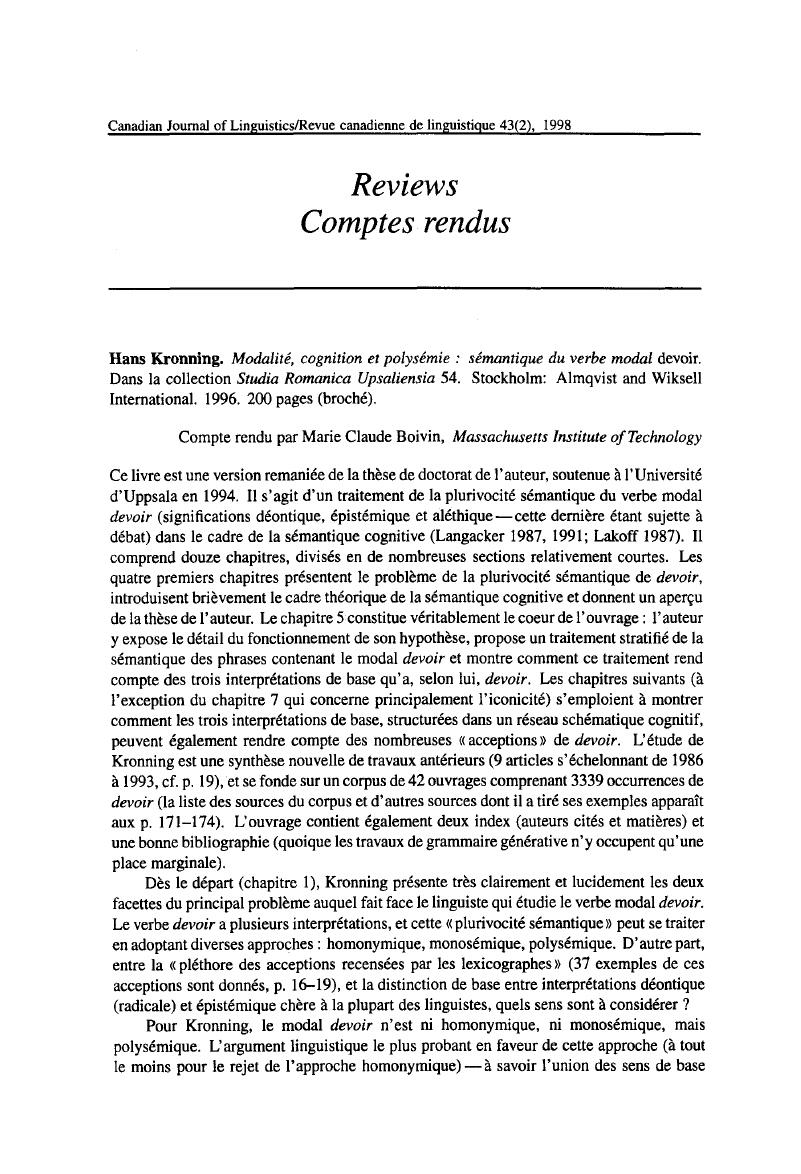No CrossRef data available.
Article contents
Hans Kronning. Modalité, cognition et polysémie: sémantique du verbe modal devoir. Dans la collection Studia Romanica Upsaliensia 54. Stockholm: Almqvist and Wiksell International. 1996. 200 pages (broché).
Published online by Cambridge University Press: 27 June 2016
Abstract
An abstract is not available for this content so a preview has been provided. Please use the Get access link above for information on how to access this content.

- Type
- Reviews/Comptes rendus
- Information
- Canadian Journal of Linguistics/Revue canadienne de linguistique , Volume 43 , Issue 2 , June 1998 , pp. 205 - 210
- Copyright
- Copyright © Canadian Linguistic Association 1998
References
Références
Ducrot, Oswald. 1980. Analyse de textes et linguistique de l’énonciation. Dans Les mots du discours, sous la dir. Ducrot, d’Oswald et Bourcier, Daniele, 7–56. Paris: Éditions de Minuit.Google Scholar
Huot, Hélène. 1974. Le verbe devoir: Étude synchronique et diachronique. Paris: Klincksieck.Google Scholar
Lakoff, George. 1987. Women, fire and dangerous things. Chicago: University of Chicago Press.Google Scholar
Langacker, Ronald W. 1987. Foundations of cognitive grammar, vol. 1: Theoretical prerequisites. Stanford: Stanford University Press.Google Scholar
Langacker, Ronald W. 1991. Foundations of cognitive grammar, vol. 2: Descriptive applications. Stanford: Stanford University Press.Google Scholar
Sueur, Jean-Pierre. 1975. Étude sémantique et syntaxique des verbes devoir et pouvoir
. Thèse de doctorat de troisième cycle, Université de Paris X, Nanterre.Google Scholar
Sueur, Jean-Pierre. 1979. Une analyse sémantique des verbes devoir et pouvoir
. Le français moderne
47:97–120.Google Scholar


